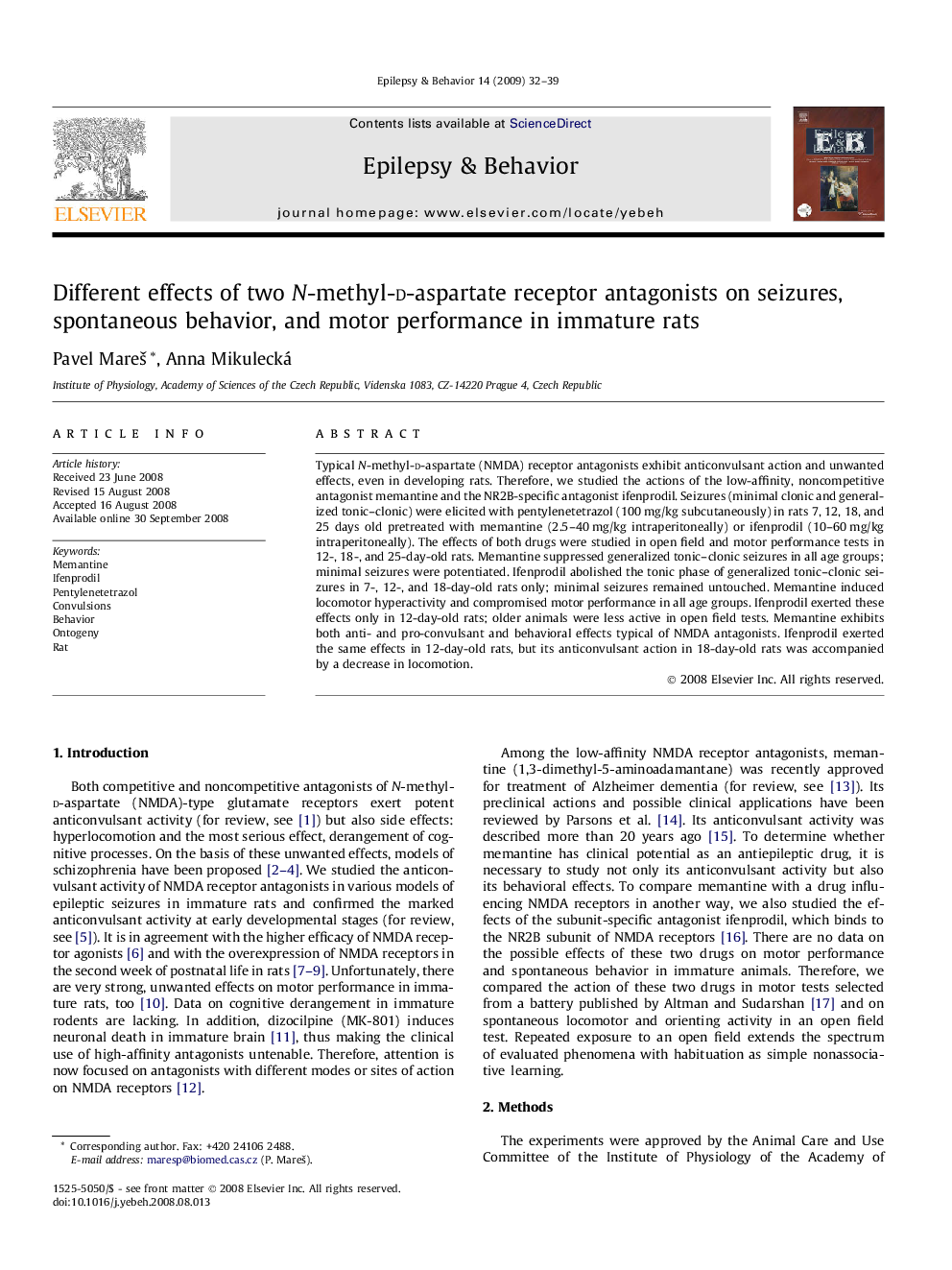| Article ID | Journal | Published Year | Pages | File Type |
|---|---|---|---|---|
| 3051019 | Epilepsy & Behavior | 2009 | 8 Pages |
Typical N-methyl-d-aspartate (NMDA) receptor antagonists exhibit anticonvulsant action and unwanted effects, even in developing rats. Therefore, we studied the actions of the low-affinity, noncompetitive antagonist memantine and the NR2B-specific antagonist ifenprodil. Seizures (minimal clonic and generalized tonic–clonic) were elicited with pentylenetetrazol (100 mg/kg subcutaneously) in rats 7, 12, 18, and 25 days old pretreated with memantine (2.5–40 mg/kg intraperitoneally) or ifenprodil (10–60 mg/kg intraperitoneally). The effects of both drugs were studied in open field and motor performance tests in 12-, 18-, and 25-day-old rats. Memantine suppressed generalized tonic–clonic seizures in all age groups; minimal seizures were potentiated. Ifenprodil abolished the tonic phase of generalized tonic–clonic seizures in 7-, 12-, and 18-day-old rats only; minimal seizures remained untouched. Memantine induced locomotor hyperactivity and compromised motor performance in all age groups. Ifenprodil exerted these effects only in 12-day-old rats; older animals were less active in open field tests. Memantine exhibits both anti- and pro-convulsant and behavioral effects typical of NMDA antagonists. Ifenprodil exerted the same effects in 12-day-old rats, but its anticonvulsant action in 18-day-old rats was accompanied by a decrease in locomotion.
